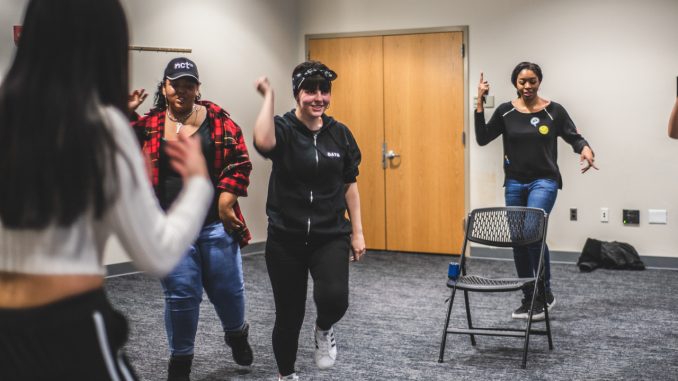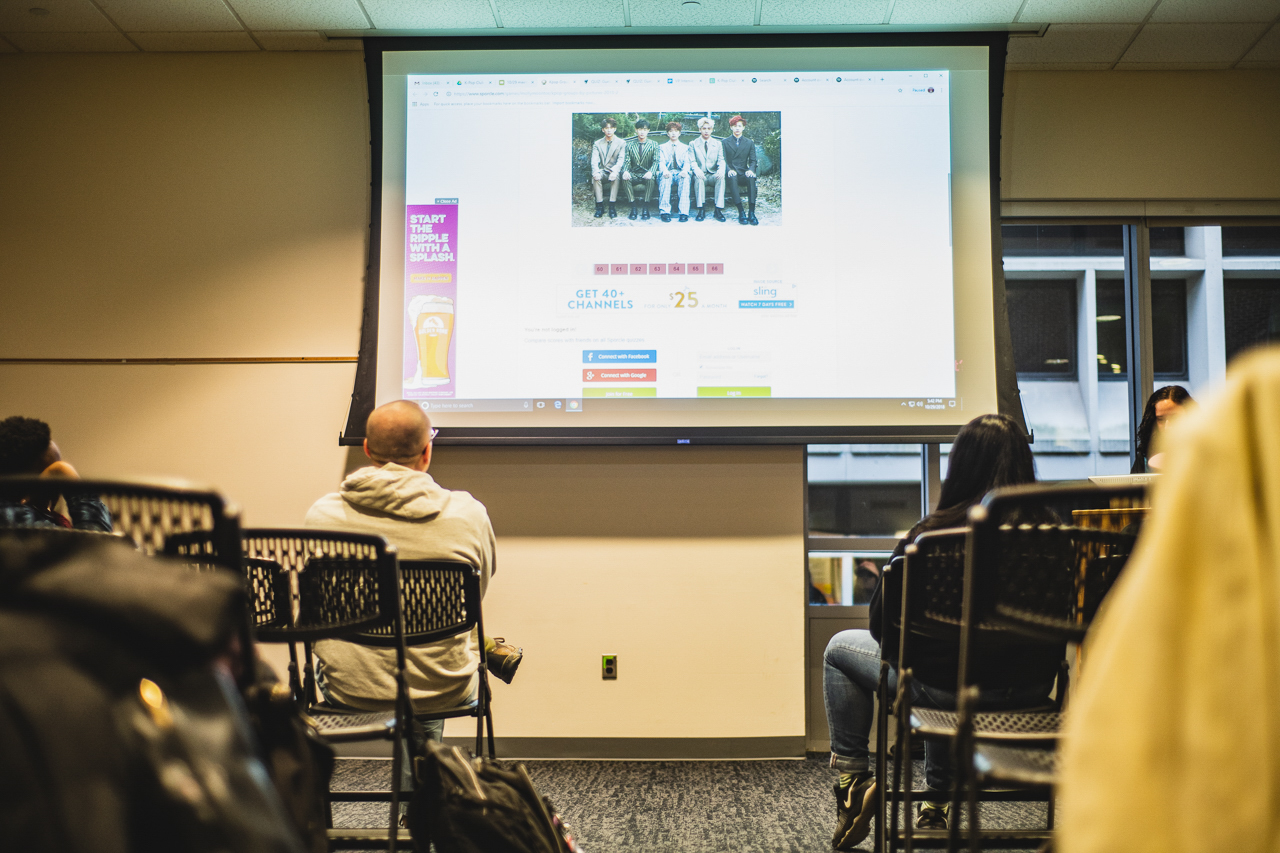
As K-pop songs started topping the international music charts, Joy Best noticed the music genre wasn’t celebrated on campus.
“It was a bit disappointing because I heard of other schools having [clubs],” said Best, a sophomore undeclared major in university studies.
To connect students interested in K-pop, Best and freshman computer science major Stephanie Minnis started K-Pop Club, Temple’s first student organization dedicated to South Korean pop music.
K-pop is a form of South Korean pop music influenced by musical styles and genres from around the world. Last school year, students from South Korea represented 6 percent of Temple’s international student body and the third largest international population on campus, according to the 2017-18 Temple University Fact Book.
Students in the K-Pop Club learn about South Korean culture through K-pop dance workshops, visit Korean restaurants and play games from Korean entertainment variety shows, like lip reading and telepathy. They also discuss topics relating to K-pop, like its politics and the beauty standards in South Korean culture.
Best said she hopes students can make friends through the club, especially because some students are still “pretty closeted” about liking K-pop.
“Back in middle school or high school, people didn’t get it, so I was bullied pretty hard for it and stopped listening,” she added.
Sophomore global studies major Aniya Arrington said she struggled last year to find other students who are K-pop fans.
“Being a Black woman and liking K-pop is so looked down upon and it seemed like no one was interested in the genre,” she said. “When I found out Temple finally created a K-pop club, I was so happy.”
She added she enjoys the club because of its diversity.
“No one, depending on their race, gender, ethnicity, was frowned upon for liking K-pop,” she said.

American college students studying Korean increased by nearly 14 percent from 2013-16, according to a report by the Modern Language Association, and K-pop’s popularity is a major reason for that.
Popular K-pop group BTS has topped the Billboard 200 chart twice with two different albums.
Last month, the South Korean government awarded the group’s seven members Hwagwan Orders of Cultural Merit, an honor given to exceptional individuals who promote South Korean culture and language internationally.
A few days after the K-Pop Club met for the first time in October, the Diamond Marching Band performed “IDOL” by BTS at Temple’s homecoming football game.
“For BTS to become so mainstream and popular that a marching band plays them at a football game is just really cool to see,” Best said.
Matthew Brunner, the director of the Diamond Marching Band, said he first heard of BTS when he watched the group’s summer 2018 performance at the Billboard Music Awards on TV.
“Every time they showed them on screen, the people went completely nuts,” Brunner said. “You just heard the screams, and it was like Elvis Presley and The Beatles together, times 10.”
A YouTube video of the marching band’s performance received 1 million views in five days, which was a new a record, Brunner said.
Asian Studies instructor Katie Lee, who teaches Korean classes, also credits BTS for making K-pop known worldwide, especially with the group’s appearance at the United Nations in September.
Lee lived in South Korea before moving to the United States in 1998 and said she has seen K-pop’s international popularity grow.
“When I started [teaching], what I would hear more is, ‘I love Korean dramas,’” Lee said. “Few people said they loved Korean music. But nowadays, I hear more people are interested in Korean music compared to seven years ago.”
Since the genre is still new for many people, some students have expressed concerns about being judged for listening to it, Minnis said.
“Because many people often get discriminated for enjoying K-pop, I hope that the K-Pop Club can be a place where all fans can feel comfortable and safe when expressing their love for Korean music,” she added.



Be the first to comment